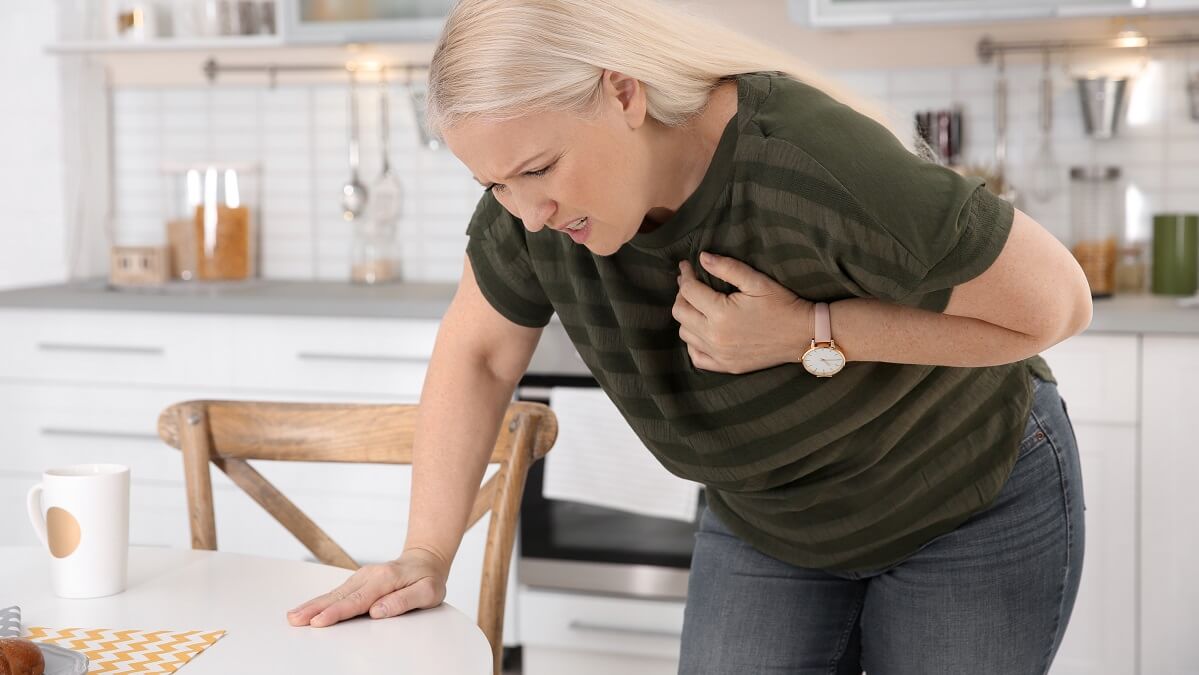COVID is no longer front of mind for many Australians, but if the latest research into heart health in this country is any indication, it should be. That research indicates the incidence of fatal heart attacks in Australia surged in 2022.
In the first eight months of last year, more than 10,200 Australians died of ischaemic heart disease. That represents an increase of about 17 per cent over the equivalent figures in an average year. And the experts are pointing the finger of blame squarely at COVID.
Ischaemic heart disease, also known as coronary heart disease (CHD), has been the leading cause of death in Australia for many years. It occurs when the arteries that deliver blood to the heart become blocked. There is no one cause of coronary heart disease, but there are several risk factors that can increase your chance of developing the condition.
Read: What COVID does to your immune system
And since 2020, the pandemic has sent those risk factors into overdrive.
Professor Tom Marwick, director of the Baker Heart and Diabetes Institute, says an increase in the number of deaths was almost inevitable with the advent of COVID.
“The camel’s back was straining under the burden of risk factors, and then we have an infectious disease on top with a bunch of inflammation and hey presto we get an increase of cardiovascular events,” he said.
According to the Heart Foundation, COVID can affect the cardiovascular system in many ways, including via widespread inflammation. That can subsequently progress to lung injury, heart muscle injury and impaired heart function.
Read: Heart attack warning signs that could save your life
When combined with other risk factors such as high blood pressure, diabetes and obesity, the onset of COVID can cause further cardiovascular complications, such as irregular heartbeat (atrial fibrillation), heart failure, blood clots in the legs and lungs, heart attacks and stroke.
A research paper delivered last year and published in Nature provided further confirmation of those dangers. The study found that rates of heart attack and stroke were substantially higher in military veterans who had recovered from COVID, compared to those who had not contracted the disease.
The clear message is, if you want to avoid CHD, do something about lowering your risk factors. While that’s easier said than done when it comes to high blood pressure, diabetes and obesity, there’s a very straightforward way of lowering your risk of contracting COVID – make sure you’re up to date with your vaccinations.
Read: What we now know about long COVID and our brains
Vaccination sceptics might point to the risk factors the vaccines themselves pose and, while there have been rare cases of myocarditis and pericarditis linked to COVID vaccines, those risks are far lower than those posed by COVID itself.
Additionally, the Therapeutic Goods Administration (TGA) says that most people who develop myocarditis and pericarditis as a result of the vaccine get better within days.
For those with risk factors for cardiovascular disease, the overwhelming advice from medical experts is that vaccination is crucial. And if you think COVID is on its way out, think again. In the first 20 days of 2023, Australia recorded 1063 COVID deaths.
COVID isn’t going anywhere in a hurry, and while it remains, the increased risk of heart disease will remain, too.
Do you suffer from high blood pressure, diabetes or obesity? Has this affected your attitude towards COVID vaccinations? Why not share your thoughts in the comments section below?


omg, blaming covid? really?? look at the other obvious reason!
Being up to date with vaccination is very important to reduce the risk of severe illness and death. However, even though it reduces the chance of catching covid it doesn’t stop it completely so it is also important to keep safe in other ways such as wearing a mask when in indoors with other people, using air purifiers etc. Vaccination alone is not enough.
The vaccination does absolutely nothing to reduce transmission, Pfizer have even come out to confirm that they never tested the vaccine on transmission. As for reducing serious illness or death, perhaps have a look at the NSW Health information – people with 3, 4 and 5 jabs are the ones in hospital, ICU and deaths. NSW Health have now stopped releasing the vaccination status for these people as it was showing how ineffective the jabs really are and the public were starting to question them.
None of which is true is it ?
I’m with Kathryn. When is this FUD going to stop. It is the vaccination. Simples.
Oh look the anti-vax crowd of about 5% of us jump in to say the vaccine is the cause of heart attacks not Covid. Never mind the trained and compassionate medical professionals who say otherwise. What would they know.
One poster even used some dubious hospital figures in a way intended to mislead.
This article hasn’t been fact checked! Do your homework first.